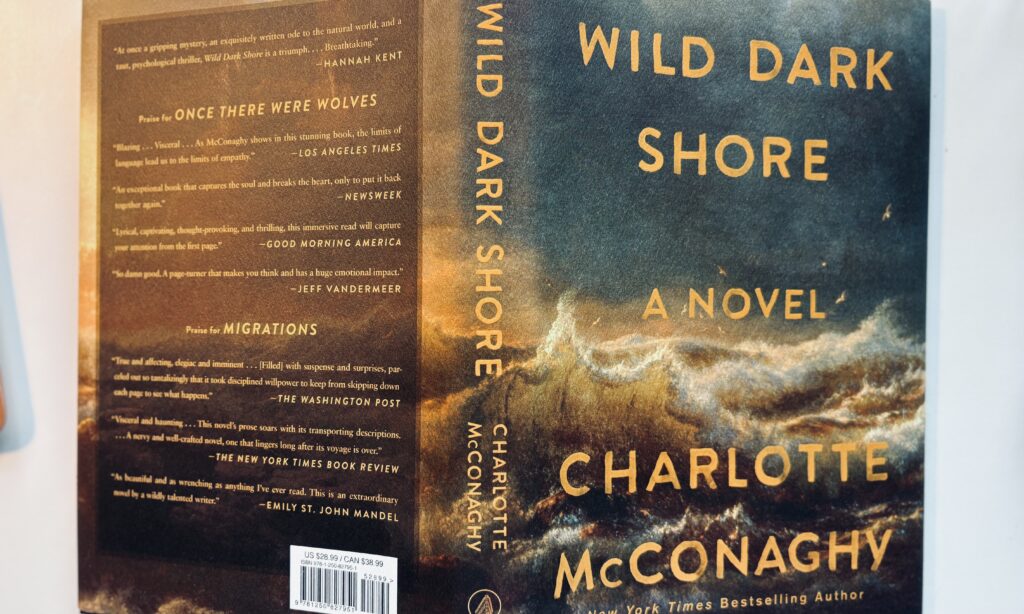There is a land of the living and a land of the dead
and the bridge is love,
the only survival, the only meaning.
—Thornton Wilder
In Charlotte McConaghy’s captivating new novel, Wild, Dark Shore, powerful love can be found in the unlikeliest places – in a conversation between a husband and his deceased wife, between a child and the tiny seeds he helps to protect, and in the respectful silence between a woman washed ashore and the girl who finds her.
Told in short, electric chapters, Wild, Dark Shore begins with the voice of Rowan, a woman who nearly drowns off the coast of remote Shearwater Island, a fictionalized outpost based on the UNESCO heritage site Macquarie Island.
Although she claims to have come to Shearwater by accident during a shipwreck, she has in fact journeyed there purposefully to find her husband, Hank, a researcher who has disappeared. Why she doesn’t want the Salt family, stewards of Shearwater’s research base, to know that or how she is connected to Hank is just one of the book’s many mysteries.
Dominic Salt, father of three and caretaker of the precious seed bank beneath the island’s permafrost, is suspicious of Rowan, but also entranced. Alone on the island for years with his children and a few researchers after the death of his wife, Dominic is drawn to Rowan’s extreme vulnerability, and her obvious deception.
“She’s lying to me,” Dominic thinks to himself. In one of the many poignant moments in the novel, he discusses his suspicions about Rowan with his ghost-wife, a loving voice in his head that tells him to lie down, close his eyes, and stop thinking so much.
In the context of Shearwater, a sparsely populated outpost itself at risk of drowning, peculiar beliefs like those Dominic holds fast are not only normalized, but also necessary for survival. Each of Dom’s children – Raff, Fen, and Orly – has a compelling idiosyncrasy of their own. For example, Raff, the oldest, manages his mostly mute grief through boxing; Fen, the only girl, is most comfortable sleeping outdoors in the elements or swimming in freezing water; and Orly, the youngest, communes with the seeds nestled in the bank underground and internalizes their stories.
A book about human resilience and love, Wild, Dark Shore, is also a work of climate fiction that employs the pathetic fallacy with unusual skill. In the seismic roll of its waves and ferocity of its wind, its rising tides catalyze and mirror the crises of spirit, body, and mind in the humans that voice this narrative.

